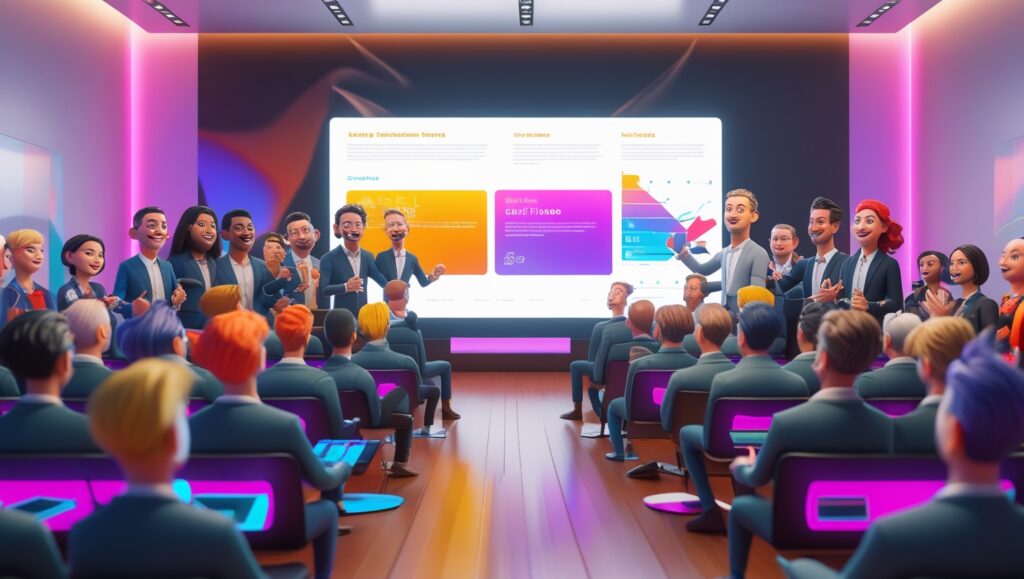Have you ever wondered how the ships that fuel global trade, the offshore platforms that power our energy needs, or the submarines that safeguard naval defense are designed and maintained? The answer often begins at a Marine Engineering Conference, where industry leaders, researchers, and policymakers gather to discuss maritime challenges and innovations.
These conferences are more than events—they are catalysts for global change. By uniting academic knowledge, cutting-edge technology, and sustainable practices, they shape the future of marine transport, offshore engineering, and ocean conservation.
What is a Marine Engineering Conference?
A Marine Engineering Conference is a professional gathering where experts share research, showcase new technologies, and explore solutions for the maritime industry. Unlike generic engineering summits, these conferences focus specifically on:
- Shipbuilding technologies and automation
- Sustainable propulsion systems (hybrid, LNG, hydrogen-powered vessels)
- Marine safety & regulations (IMO, SOLAS, MARPOL updates)
- Offshore engineering (oil rigs, wind farms, subsea pipelines)
- Marine robotics & AI applications
- Climate impact & green shipping initiatives
In essence, these conferences create a bridge between academia, industry, and government, ensuring the sector evolves responsibly.
Why Attend a Marine Engineering Conference?
Attending such a conference is not just about collecting badges or watching presentations—it’s about gaining actionable insights and building a professional edge.
Key Benefits for Attendees:
- Access to Innovation – Explore next-gen marine technologies before they hit the mainstream.
- Networking Opportunities – Connect with global shipbuilders, port authorities, and defense organizations.
- Policy Influence – Learn directly from regulatory bodies about evolving maritime laws.
- Career Growth – Gain certifications, training, and exclusive recruitment opportunities.
- Sustainability Roadmaps – Discover how the maritime industry is pivoting toward green shipping.
Global Trends Highlighted in Marine Engineering Conferences
Every year, conferences spotlight megatrends transforming the industry:
1. Sustainable Shipping & Green Propulsion
- The shift to LNG, hybrid, and hydrogen-powered vessels is reducing emissions.
- Conferences showcase case studies of zero-carbon ports and ship designs.
2. Smart Ports & Digitalization
- AI-driven logistics, blockchain for cargo transparency, and autonomous port management.
- A major focus is on cybersecurity in maritime networks, ensuring ships and ports remain resilient.
3. Offshore Renewable Energy
- Offshore wind farms and tidal energy projects are increasingly tied to marine engineering.
- Conferences often reveal new marine structural designs that withstand extreme weather.
4. Advanced Marine Robotics
- From underwater drones for exploration to robotic welding systems for shipyards.
- These sessions highlight automation reducing costs and improving safety.
Who Should Attend a Marine Engineering Conference?
Marine Engineering Conferences attract a diverse global audience, including:
- Maritime Engineers & Naval Architects – Seeking updates on ship design & propulsion.
- Researchers & Academics – Presenting innovative studies and projects.
- Shipbuilding & Offshore Companies – Looking for partnerships and contracts.
- Regulatory Bodies – Sharing updates on IMO, SOLAS, MARPOL compliance.
- Defense & Naval Experts – Exploring submarine and naval vessel innovations.
- Investors & Startups – Identifying funding and innovation opportunities.
Top Topics You’ll Encounter
A typical conference agenda includes:
- Keynote Speeches – Visionary talks on maritime sustainability.
- Technical Sessions – Research papers on propulsion, hull design, and automation.
- Workshops & Training – Hands-on skill development.
- Exhibitions – Showcasing marine technology, shipyard innovations, and simulation tools.
- Panel Discussions – Experts debating shipping regulations, AI adoption, and future fuels.
How Marine Engineering Conferences Drive Sustainability
With the IMO 2050 decarbonization target looming, sustainability dominates marine engineering dialogues.
- Green Fuels: Hydrogen, ammonia, and biofuels as alternatives to diesel.
- Emission Reduction Technologies: Scrubbers, carbon capture, and air lubrication systems.
- Circular Economy in Shipbuilding: Recycling ship materials to reduce environmental impact.
- Digital Twins for Marine Assets: Simulation models that optimize energy efficiency.
By spotlighting these practices, conferences accelerate the global transition to sustainable seas.
Marine Engineering Conference & Career Opportunities
For students, researchers, and professionals, these events open career-defining doors:
- Present research that gains international recognition.
- Meet recruiters from top shipbuilding companies and maritime organizations.
- Access mentorship from industry veterans.
- Gain certifications that strengthen professional profiles.
Actionable Tips for Maximizing Conference Value
- Prepare Questions – Engage speakers with thoughtful queries.
- Leverage Networking Tools – Many conferences have apps to connect attendees.
- Visit Exhibitions – Hands-on demos often reveal innovations better than slides.
- Document Learnings – Summarize insights for your team post-conference.
- Follow Up – Networking is only valuable if you build long-term connections.
Upcoming Marine Engineering Conferences (2025 & Beyond)
While each year sees hundreds of conferences worldwide, some notable upcoming events include:
- International Conference on Marine Engineering & Technology (ICMET) – Asia-Pacific focus.
- Global Green Shipping Forum – Europe’s leading sustainability summit.
- Offshore Engineering Expo – Specialized in subsea and offshore structures.
- World Maritime University Research Symposium – Academic-heavy conference with global reach.
(Check local listings or academic journals for exact dates.)
Conclusion: Why You Can’t Miss the Next Marine Engineering Conference
A Marine Engineering Conference isn’t just another industry gathering—it’s the heartbeat of maritime innovation. Whether you’re a shipbuilder aiming to reduce costs, a policymaker shaping global trade laws, or a student aspiring to build a maritime career, these conferences give you the tools, insights, and networks you need.
🌊 Don’t just observe the future of marine engineering—be part of shaping it.
👉 Register now and explore upcoming events at Conferences Daily.
FAQs: Marine Engineering Conference
1. What is the purpose of a Marine Engineering Conference?
It provides a platform for sharing research, showcasing new technologies, and networking across academia, industry, and government.
2. Who attends these conferences?
Attendees include engineers, naval architects, researchers, shipbuilders, regulators, defense experts, and investors.
3. Are students allowed to participate?
Yes, many conferences have dedicated student sessions, competitions, and reduced registration fees.
4. How do these conferences impact the shipping industry?
They accelerate innovation, promote sustainability, and influence international maritime policies.
5. Where can I find upcoming Marine Engineering Conferences?
You can track events on academic platforms, professional associations, and through Conferences Daily.















